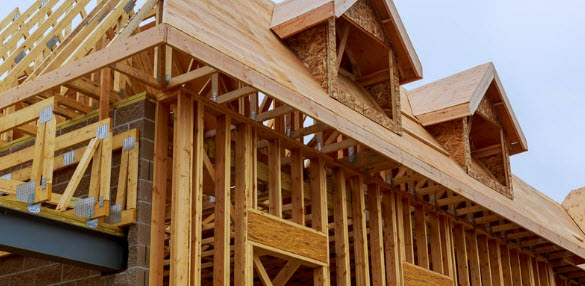If you’ve built up equity in your home, tapping into that value through a home equity loan can be an appealing option. Whether you’re looking to finance a home renovation, consolidate debt, or cover other major expenses, home equity loans offer a way to borrow at relatively low rates. However, before making this financial decision, it’s important to weigh the pros and cons of home equity loans to see if they are the right fit for you.
What is a Home Equity Loan?
A home equity loan allows you to borrow against the value of your home, typically in a lump sum. The amount you can borrow is based on the equity you’ve built up over time—generally, up to 85% of your home’s appraised value, minus what you still owe on your mortgage. The interest rates are usually fixed, and repayment terms typically last between 5 and 30 years.
Pros of Home Equity Loans
1. Lower Interest Rates
Compared to personal loans and credit cards, interest rates for home equity loans are generally much lower. Since the loan is secured by your home, lenders view it as less risky, allowing you to borrow at rates often between 5% and 8%.
2. Fixed Monthly Payments
With most home equity loans, you’ll enjoy predictable payments. Fixed interest rates mean that your payments will remain constant over the loan term, making it easier to budget.
3. Lump Sum for Large Expenses
A home equity loan provides a large sum of money upfront, which can be beneficial for significant expenses like home improvements, medical bills, or college tuition.
4. Potential Tax Deductions
If you use the loan for home improvements, the interest paid may be tax-deductible. Consult with a tax advisor to determine whether you qualify for this deduction under current tax laws.
5. Long Repayment Terms
Best home equity loans often offer flexible repayment terms ranging from 5 to 30 years, which can make monthly payments more affordable.
Cons of Home Equity Loans
1. Risk of Foreclosure
Since the loan is secured by your home, missing payments could put your property at risk of foreclosure. Be sure that you can commit to the monthly payments before taking out a home equity loan.
2. Closing Costs and Fees
Like a primary mortgage, home equity loans come with closing costs, which typically range from 2% to 5% of the loan amount. This can add up, especially for larger loans, and must be factored into the total cost of borrowing.
3. Reducing Home Equity
Borrowing against your home reduces the equity you’ve built, which can affect your financial stability. If home values decline, you could owe more than your home is worth, leading to negative equity.
4. Interest Payments Over Time
While home equity loans rates are lower than most unsecured loans, paying interest over a long term can add up. A 30-year loan, for example, can lead to paying thousands more in interest over the life of the loan.
5. Fixed Amount and Terms
A home equity loan gives you a lump sum, but that also means you can’t borrow more unless you take out a new loan. This contrasts with a home equity line of credit (HELOC), which offers more flexibility.
Interest Rates for Home Equity Loans: What to Expect
The interest rates for home equity loans are determined by several factors, including your credit score, the loan-to-value ratio (LTV), and market conditions. Here’s a general breakdown of current rates based on different credit score ranges:
Credit Score Range | Home Equity Loan Rate |
740+ | 5.0% – 6.0% |
680 – 739 | 6.0% – 7.5% |
620 – 679 | 7.5% – 9.0% |
Below 620 | 9.0% and above |
As you can see, the best home equity loans are typically available to borrowers with higher credit scores, offering lower interest rates and more favorable terms.
Explore home equity loans using your Home Wealth Blueprint, crafted with real-time property data from HomeLoanAdvisor. Get personalized mortgage options and home wealth strategies that align with your financial profile.
FAQs
- What are typical home equity loan rates?
Interest rates for home equity loans typically range from 5% to 9%, depending on your credit score and the lender. - What is the best home equity loan term?
The best term depends on your financial situation. A shorter loan term means higher monthly payments but lower overall interest, while a longer term offers lower payments but higher interest costs. - How do I qualify for a home equity loan?
Lenders generally require at least 15% to 20% equity in your home, a good credit score, and a low debt-to-income ratio. - Can I use a home equity loan for anything?
Yes, home equity loans can be used for any purpose, including home renovations, medical bills, or debt consolidation. - How long does it take to get a home equity loan?
The process typically takes two to six weeks, depending on the lender and your financial profile. - Are there closing costs for home equity loans?
Yes, closing costs typically range from 2% to 5% of the loan amount, depending on the lender. - Is the interest on a home equity loan tax-deductible?
Interest may be tax-deductible if the loan is used for home improvements, but consult with a tax advisor for specific details. - How much can I borrow with a home equity loan?
Lenders typically allow you to borrow up to 85% of your home’s appraised value, minus what you owe on the mortgage. - Can I lose my home with a home equity loan?
Yes, if you fail to make payments, your home is at risk of foreclosure since the loan is secured by your property.
What’s the difference between a home equity loan and a HELOC?
A home equity loan gives you a lump sum at a fixed rate, while a HELOC is a line of credit with variable rates, allowing you to borrow as needed.
Conclusion
A home equity loan can be a powerful tool for financing large expenses or consolidating debt, but it’s not without risks. Carefully consider the interest rates for home equity loans and the pros and cons before deciding if it’s the right option for you. Be sure to compare multiple lenders to find the best home equity loans with terms that suit your financial goals.



